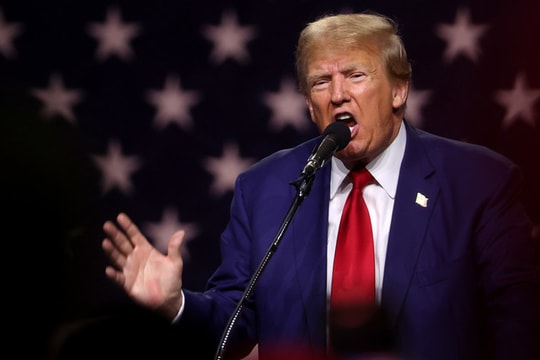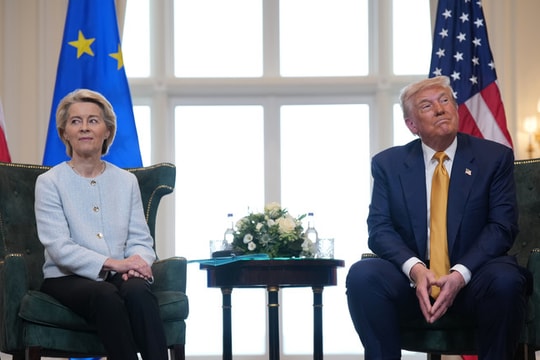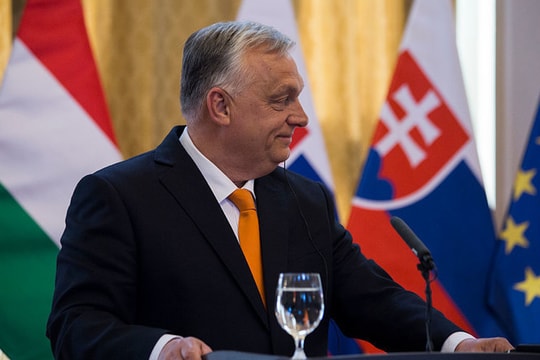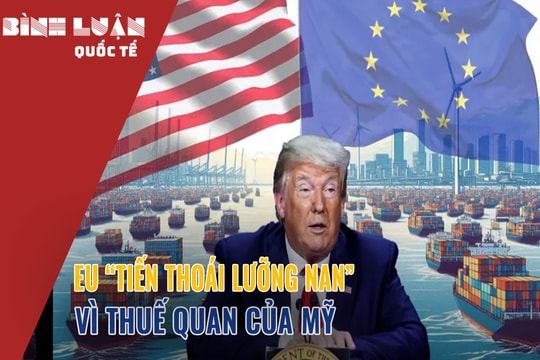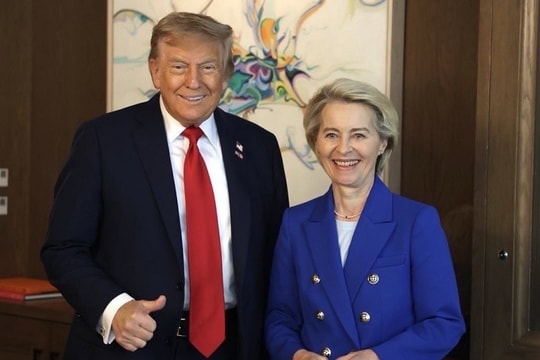The price of border control
(Baonghean.vn) - More and more European Union (EU) member countries are re-applying long-abandoned national border controls, with the aim of finding ways to reduce the flow of migrants. So what are the consequences of these measures?
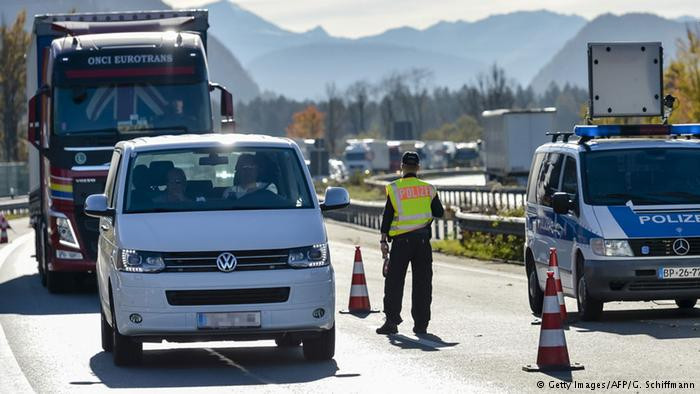 |
| More and more EU countries are reintroducing border controls. Photo: AFP. |
“Passport, please!” These are words that are being heard with increasing frequency in Europe, where for years people have grown accustomed to travelling without border controls. But travel is not the only area facing lurking dangers.
Many elements of business life operate as if Europe were a single country. Production facilities and distribution chains are spread across the EU; workers move from country to country. The free movement of people and the free exchange of goods and services existed before the Schengen area was established, but the introduction of Schengen has greatly simplified and accelerated this free movement.
That is why politicians and experts say that if the system is gradually dismantled, the economic consequences will be severe. More traffic congestion at borders, more administrative burdens, more goods sitting in warehouses in each country, instead of being produced just in time across Europe.
Lobbyists and trade unions fear all this will soon add up to an additional cost of up to €10 billion ($10.8 billion) a year for German industry alone – not to mention the consequences for the job market, taxes, and social security system.
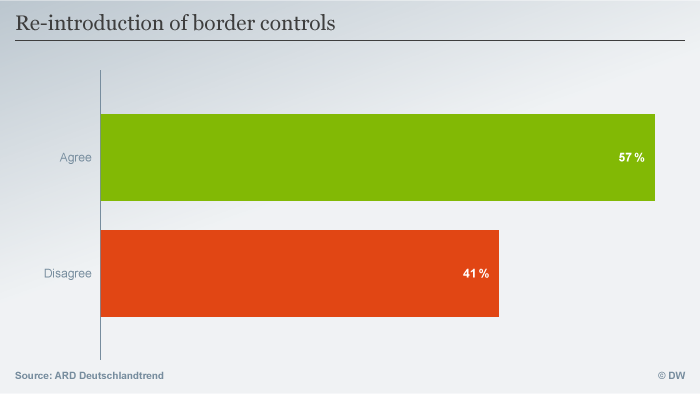 |
| The referendum on re-imposing border controls in Germany received 59% of votes in favor. Photo: DW. |
Are things getting worse?
“If the Schengen system were to be destroyed, it would suddenly harm Europe, both politically and economically,” German Finance Minister Wolfgang Schäuble told Spiegel. EU Commission President Jean-Claude Juncker even asserted: “Whoever ends Schengen would effectively bury the single market.”
Martin Schulz, President of the European Parliament, warned in the German daily Passauer Neue Presse that the effects of border closures would be “catastrophic.” If trucks had to wait hours at Europe’s internal borders, “some production would come to a halt,” he said.
Juncker estimates that the current situation is already costing transport companies an additional €2 billion a year. If border controls are reintroduced everywhere, the German Chamber of Commerce and Industry estimates that this figure could rise to €10 billion.
Anton Börner, chairman of the German Federation of Wholesale, Foreign Trade and Services, which is heavily influenced by the bloc, was even more pessimistic: “If we lose the Schengen Agreement, or a single market with free trade, the German business model could go out the door.” He added that the currency union would disintegrate, a concern shared not only by him but also by Mr Juncker, German Chancellor Angela Merkel and many others.
However, if Schengen ceases to exist, it certainly does not mean the end of the single market. For example, the UK is part of the single market, but it has not signed up to the Schengen area.
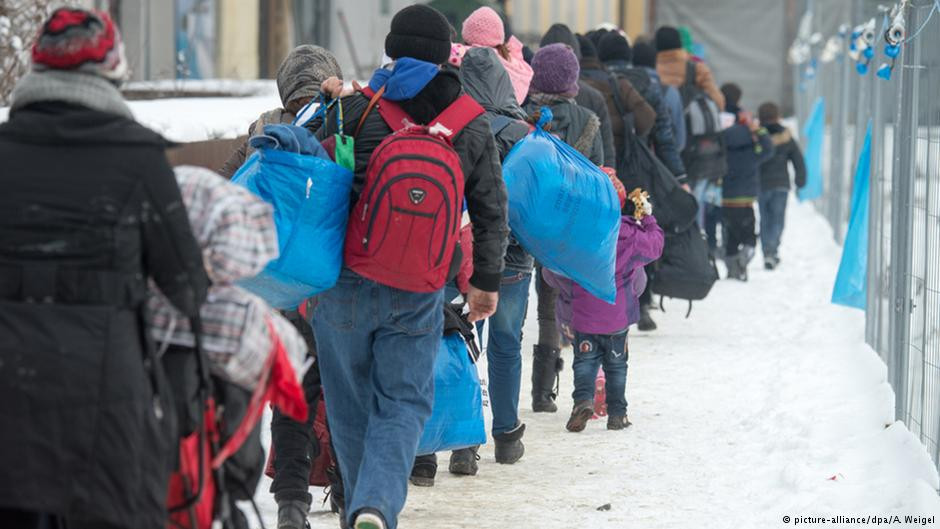 |
| The flow of migrants has faced many obstacles as some EU countries rebuild border fences. Photo: dpa. |
The importance of social stability
Not everyone agrees with these predictions, including Clemens Fuest, president of the Center for European Economic Research. He believes that the economic consequences of border closures will be manageable. The impact can be contained by allowing most vehicles to pass through the border, and only checking individuals.
While there are concerns about the knock-on effects of border closures, Fuest is hopeful. He says it may eventually be just the EU’s external borders that need to be controlled, and internal borders could reopen.
But above all, Fuest hopes it will be a way to build social harmony. The economist also foresees the consequences of a radicalized society if the massive migration continues, as the EU reaches the limits of its organizational capacity.
Fears of competition are also a threat to social stability. For example, within trade unions and the political left, there are those who suspect that if businesses support accepting more migrants, what they really want is to put pressure on workers.
Some argue that the refugee debate should not be used to pressure wages, while others warn that competition for jobs, housing and state benefits will be driven primarily by the weaker sections of society.
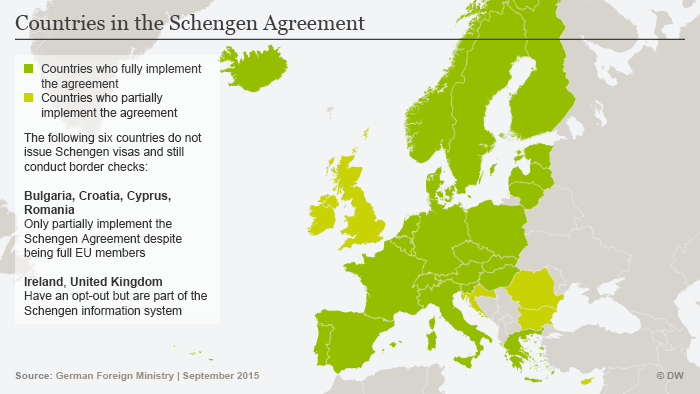 |
| Members of the Schengen Agreement. Six countries including Bulgaria, Croatia, Cyprus, Romania, Ireland and the UK do not issue Schengen visas and still carry out border controls. Photo: DW. |
Understanding border closures
It is clear that no one in Europe is taking border controls lightly, but rather sees them as an emergency measure to curb the uncontrollable flow of refugees. This explains why German Finance Minister Schäuble, despite all the warnings, has expressed understanding of such actions. “We know that the capacities of EU countries are not unlimited,” he said. “We also see that Sweden has introduced border controls, and for decades it has been one of the most welcoming countries for migrants.”
In short, people hope that the controls will be temporary, and that they will ultimately save Schengen. Overall, given the complexities of the Schengen restrictions, the dominant view among opponents is that both open external borders and the existence of internal borders are untenable in the long term.
Thu Giang
(According to DW)
| RELATED NEWS |
|---|

